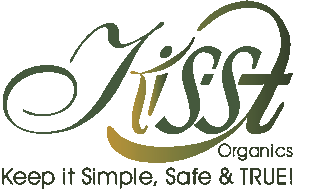
My expertise is in people, particularly in health both internal and external which includes diet, nutrition, skincare and cosmetics. My goals are to help you with information that is Simple, Safe & True! Just like our logo states! In this blog, I will answer questions about your holistic health (encapsulating mind, body & spirit) as well as skincare, cosmetics and KISST products. C'mon..Let's Talk and take a journey of health together!
Tuesday, August 14, 2012
Activated Charcoal
Pharmacist P.F. Touery, shocked colleagues at The French Academy of Medicine in 1831 by drinking a massive dose of lethal strychnine in front of them. Amazingly, he suffered no toxic effects. He had combined the deadly poison with activated charcoal, an antidote and detoxifying agent that goes back centuries.
Today, activated charcoal is in all hospital ERs and many emergency vehicles as a fast, effective antidote for poisons of all types. It is considered safe and effective by the FDA, and it's inexpensive. Very few know of this amazing natural antidote, and even less know of its general detoxifying capacity.
Explaining Activated Charcoal
Don't confuse activated charcoal with charcoal briquettes for barbecuing or anything else. Those contain toxic chemicals and carcinogens. Using the powder form of activated charcoal is recommended. It's easy to ingest as a fine powder in water. It's tasteless, though a tad gritty.
It is derived from burning pure, untainted organic substances, such as coconuts or certain woods, without using chemicals in the process.
Dr. Al Sears, MD, has his patients use it for detoxing even heavy metals, and he uses it himself. For heavy metal detoxifying, he recommends a total of 20 grams per day, spaced apart in two to four doses, over a 12 day period.
The action of activated charcoal involves adsorption, not absorption, of toxins from the intestinal tract. Adsorption is the electrical attraction of toxins to the surfaces of the fine charcoal particles. The charcoal itself is not absorbed into the body, so the toxins attached to the charcoal particles exit via the bowels. Don't be surprised by black stools.
Some advise using it with a non-toxic toothpaste to remove plaques and stains from your teeth as well as bacteria from your mouth. A bit messy, perhaps, but considered highly effective for cleaning and sanitizing.
Dispelling Rumors
The controversy on ingesting activated charcoal is based on the notion that it also robs the body of nutrients. According to several solid sources, this is misinformation. Pharmaceutical medicines, which tend to be toxic, are removed partially or wholly, and nutrients from synthetic vitamin sources tend to be removed also. But not food nutrients.
It's actually better to take the activated charcoal two hours away from food, because food hampers the charcoal's detox activity.
This comes from the 1980 book Activated Charcoal by David O. Cooney: "Charcoal added to the diet of sheep for six months did not cause a loss of nutrients, as compared with sheep not receiving charcoal. ... A level of 5 % of the total diet was given as charcoal. It did not affect the blood or urinary levels of calcium, copper, iron, magnesium, inorganic phosphorus, potassium, sodium, zinc, creatinine, uric acid, urea nitrogen, alkaline phosphatase, total protein or urine pH."
Another rumor has it that activated charcoal causes constipation. This is only if you're already blocked a bit, but it doesn't cause it. As with any type of detox, one needs to be free of blockages to eliminate easily. Drinking more water and taking swig of pure organic Castor oil will usually take care of that. Diarrhea occasionally occurs as a temporary detox side effect.
Keep It Around
Even if you're not keen on using activated charcoal for general or heavy metal detox purposes, it would be wise to have it on hand in a sealed glass jar for those accidental sips or bites of poisonous substances and venomous insect and snake bites. It is quick to prepare, easy to take, and inexpensive.
Subscribe to:
Post Comments (Atom)
No comments:
Post a Comment